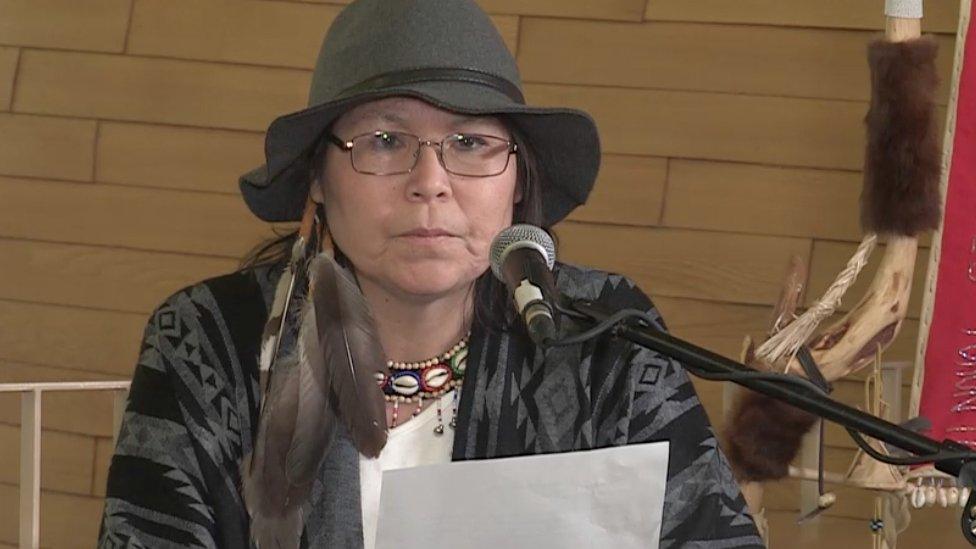Ontario court rules in favour of 'Sixties Scoop' claimants
- Published

Lead claimant Marcia Brown Martel
An Ontario court has sided with aboriginal plaintiffs in the "Sixties Scoop" class-action lawsuit against the Canadian government.
Starting in the 1960s, welfare agencies removed thousands of indigenous children from their homes and placed them with non-indigenous families.
The court decision said Canada failed to protect those children from losing their cultural identity.
The decision comes after years of litigation.
Ontario Superior Court Justice Edward Belobaba said in his ruling that Canada breached its "common law duty of care" to the children by not taking reasonable steps to prevent them losing their ties to their culture.
The suit plaintiffs had argued that they suffered emotional, psychological, and spiritual harm from the broken connection to their aboriginal heritage.
"Today, Canada became a better country," said a clearly overjoyed Marcia Brown Martel, who was the lead claimant in the class-action. "One that protects the cultural identities of all - all - its children."
Jeffery Wilson, the lead attorney on the lawsuit, said this is the first case in the western world that discusses the obligation of the state to protect the cultural identity of its indigenous peoples.
The court has yet to rule on damages. The class action is seeking CA$85,000 (US$65,000/£52,000) in damages per person, or CA$1.3bn (US$995m/£798m).
Thousands of aboriginal children were removed from their homes by Ontario provincial child welfare services between 1965 and 1984.
Around 16,000 indigenous children from the province were taken from their families and communities and put up for fostering or adoption.
They were sent to mostly non-indigenous homes in Canada, the US, New Zealand, and Australia - often without the consent of their families. First Nations communities were also not consulted on the policies. Many of the children had no contact with their families and communities after their removal.
By the 1980s, Canadian provinces began changing their adoption policies after indigenous leaders and others condemned the practice as a form of "cultural genocide".
Similar lawsuits have been filed in British Columbia, Manitoba, Alberta, and Saskatchewan, where so-called "Sixties Scoop" policies were also in place.
Mr Wilson said Tuesday's ruling could have a "ripple effect" on those other cases despite the narrow scope of this lawsuit, which focused solely on what duty the Canadian government had to the children after they had been removed from their homes.
The federal government has no plans to appeal the decision and is seeking a negotiated settlement.
- Published17 February 2016
- Published30 November 2016